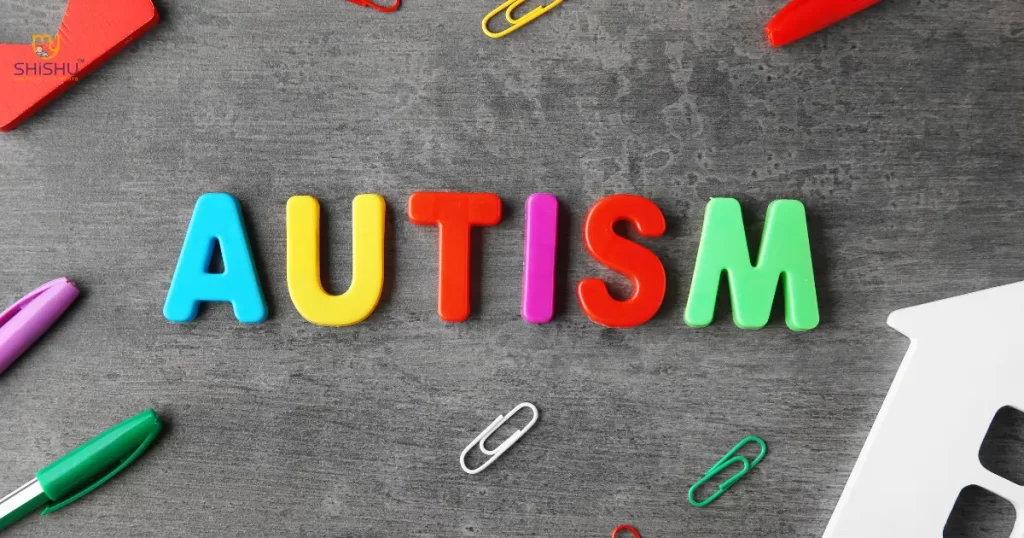How to Avoid Autism During Pregnancy: Empowering Expectant Parents
How to Avoid Autism During Pregnancy: Empowering Expectant Parents
Embarking on the transformative journey of pregnancy is a time filled with anticipation and joy. Expectant parents naturally seek ways to optimize the health and well-being of their unborn child. In recent years, discussions about the potential links between certain factors and the risk of autism spectrum disorder (ASD) have come to the forefront. This comprehensive guide aims to empower expectant parents with a plethora of strategies and insights to actively avoid autism during pregnancy, focusing on proactive measures addressing both genetic and environmental influences.
Table of Contents
Quest to Avoid Autism During Pregnancy

At the core of the autism risk discussion lies the intricate interplay of genetics. A family’s medical history becomes a crucial compass for expectant parents navigating the journey. If a familial predisposition to autism exists, healthcare professionals can offer specialized guidance and heightened vigilance throughout the pregnancy. By acknowledging and addressing genetic factors early on, expectant parents can embark on a purposeful journey to actively avoid autism during pregnancy.
Way to Avoid Autism During Pregnancy
The quest to avoid autism during pregnancy involves a holistic approach that conscientiously considers and addresses various environmental factors. Here’s a closer look at strategies that can be employed:
- Nutrition:
- Prioritize a nutrient-rich, well-balanced diet known to support healthy neurodevelopment. Consistent consultation with healthcare professionals ensures that nutritional needs specific to the pregnancy are met, actively contributing to endeavors to avoid autism during this critical period.
- Maternal Health:
- Mitigate autism risk by vigilantly maintaining optimal maternal health. Conditions such as diabetes and obesity can be managed through lifestyle adjustments and regular prenatal care, actively reducing the likelihood of developmental challenges.
- Prenatal Care:
- Regular prenatal check-ups become a cornerstone in identifying and addressing potential issues at the earliest stage. Timely intervention significantly contributes to the proactive efforts to avoid autism during pregnancy, promoting the overall well-being of both mother and child.
- Avoiding Harmful Substances:
- A fundamental step in the active avoidance of autism during pregnancy involves steering clear of harmful substances. Eliminating exposure to tobacco smoke, alcohol, and certain medications known to pose risks actively contributes to efforts to avoid autism during this crucial period.
- Stress Management:
- Actively manage stress to foster a conducive environment for fetal development. Integrating stress-reducing techniques such as mindfulness, yoga, or meditation into daily routines actively contributes to efforts to avoid autism during pregnancy.
- Environmental Toxins:
- Minimize exposure to environmental toxins by opting for organic produce and utilizing natural cleaning products. This conscientious approach plays a pivotal role in avoiding autism during pregnancy by creating a healthier living environment for both mother and child.
- Vaccinations:
- Stay diligently up-to-date on vaccinations to safeguard against infections that could pose risks to fetal development. Ensuring that vaccinations align with healthcare guidelines is an essential element in actively avoiding autism during pregnancy.
Conclusion
In conclusion, expectant parents are pivotal agents in actively avoiding autism during pregnancy. By embracing a comprehensive approach that addresses both genetic and environmental factors, parents can navigate this transformative journey with purpose. Collaborating closely with healthcare professionals, maintaining a healthy lifestyle, and staying informed about the latest research are integral components of this proactive approach. Through these concerted efforts, parents can create a nurturing environment that actively avoids autism, fostering a foundation for a promising and bright future.
FAQ’s
1. What is Autism Spectrum Disorder (ASD)?
A1: Autism Spectrum Disorder is a neurodevelopmental condition characterized by challenges in social interaction, communication, and repetitive behaviors. It is a spectrum disorder, meaning that it affects individuals differently, and to varying degrees.
2. Is Autism Genetic?
A2: There is a genetic component to autism, and individuals with a family history of autism may have a higher risk. However, genetics alone does not determine the development of autism, as environmental factors also play a role.
3. How Can I Avoid Autism During Pregnancy?
A3: While it’s not possible to guarantee the prevention of autism, certain measures can be taken during pregnancy to support healthy neurodevelopment. These include maintaining optimal maternal health, following a balanced diet, managing stress, avoiding harmful substances, and staying up-to-date on vaccinations.
4. Can Vaccinations During Pregnancy Cause Autism?
A4: No, there is no scientific evidence supporting a link between vaccinations administered during pregnancy and the development of autism. In fact, vaccinations are crucial for preventing certain infections that can pose risks to fetal development.
5. What Role Does Nutrition Play in Autism Prevention?
A5: A well-balanced diet rich in nutrients such as folic acid, omega-3 fatty acids, and vitamins is associated with healthy neurodevelopment. Consulting with healthcare professionals to ensure proper nutrition during pregnancy is essential.
Quiz
- What is Autism Spectrum Disorder characterized by?
a) Only social challenges
b) Only communication difficulties
c) Challenges in social interaction, communication, and repetitive behaviors
d) Only repetitive behaviors - Is autism solely determined by genetics?
a) Yes
b) No
c) Only in some cases
d) Only if both parents have autism - Can vaccinations during pregnancy cause autism?
a) Yes
b) No
c) It depends on the type of vaccine
d) Only if given in the first trimester - What is a crucial step in avoiding autism during pregnancy related to maternal health?
a) Avoiding all medications
b) Maintaining optimal maternal health
c) Consuming a diet high in sugar
d) Ignoring prenatal check-ups
Answers
- c) Challenges in social interaction, communication, and repetitive behaviors
- b) No
- b) No
- c) Consuming a diet high in sugar











